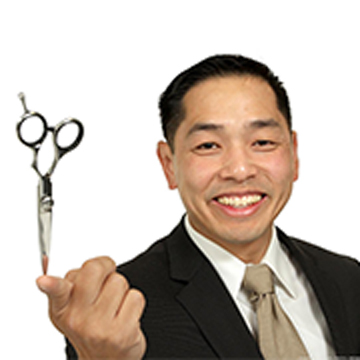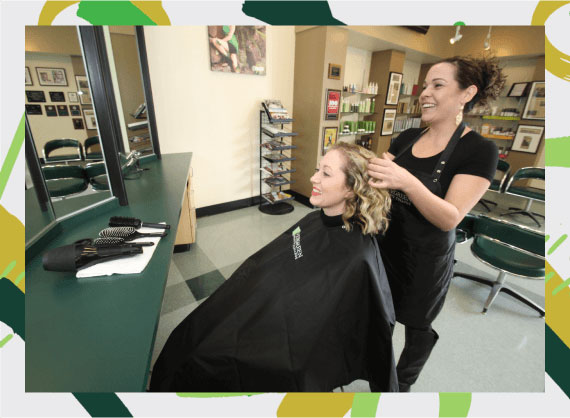Meeting the Requirements for a Cosmetology License
No matter how bad the economy, most people want to look attractive. For women and men alike, good looks begin with a good hair style, whether the desire is a cut, curl or perm. This means that licensed cosmetologists will find good job prospects, whether they choose to work solo or join a group in a salon.
Getting A Cosmetology License
Getting a cosmetology license in most states can be accomplished within one year. This includes the required class work and the taking the state’s licensing exam for cosmetologists. First, an aspiring cosmetologist must earn a degree or certificate, then he or she can sit for the state licensing examination. The routes to obtaining cosmetology training include:
- Community college or junior college programs
- High school vocational education programs
- Private cosmetology schools
Community College or Junior College Programs
Community colleges and junior colleges offer associate degrees, and diplomas or certificates. Associate degree programs take two years to complete, and diplomas and certificates may be earned in one year or less. Those earning associate degrees take more courses and are usually qualified to teach in cosmetology schools.
High School Cosmetology Programs
In many states, high school students who are aspiring cosmetologists can complete the classwork needed to for earning a cosmetology credential. Courses are taught within a vocational curriculum that prepares students to enter the workforce after high school graduation.
Private Cosmetology Schools
There are numerous private cosmetology schools that offer courses of study that qualify graduates to become licensed cosmetologists. Many of these schools offer programs that may be completed within one year, with additional courses available for those wishing to become cosmetology instructors.
Cosmetology Curriculum
The curriculum taken a cosmetology school depends on the interest and intentions of the student. Students may choose from the following professions as areas of concentration:
- Cosmetologist (Hair Stylist)
- Electrologist (Hair Removal Specialist)
- Esthetician (Skin Care Specialist)
- Manicurist (Nail Technician)
The Cosmetologist curriculum which involves hair styling takes the longest to complete. The courses of study for electrologists, estheticians, and manicurists are shorter. A cosmetology license may earned in each of these areas when an individual completes the required course of study and passes the licensing exam with a satisfactory score.
Courses taken in the curriculum will depend on the focus area. Generally, for aspiring cosmetologists who will become hair stylists, the courses required include basic chemistry, hair coloring, hair cutting, communications, and business management. Students also get hands-on practice styling hair mannequins and performing cuts and styles on live clients.
The first step toward earning a cosmetology license is to determine what type of school works best. Most schools allow full or part-time studies and community colleges, in particular, offer day and night classes.
Schedule an appointment to tour our campus and meet and speak with our instructors.




